Strategic plan 2023-27
Liga Portugal
The EY strategic intelligence at the service of Liga Portugal and Portuguese professional football
January 2024



Liga Portugal
The EY strategic intelligence at the service of Liga Portugal and Portuguese professional football
January 2024


Message from the President
Context
Future of the industry
Strategy for 2023-27
Action plan for 2023-27
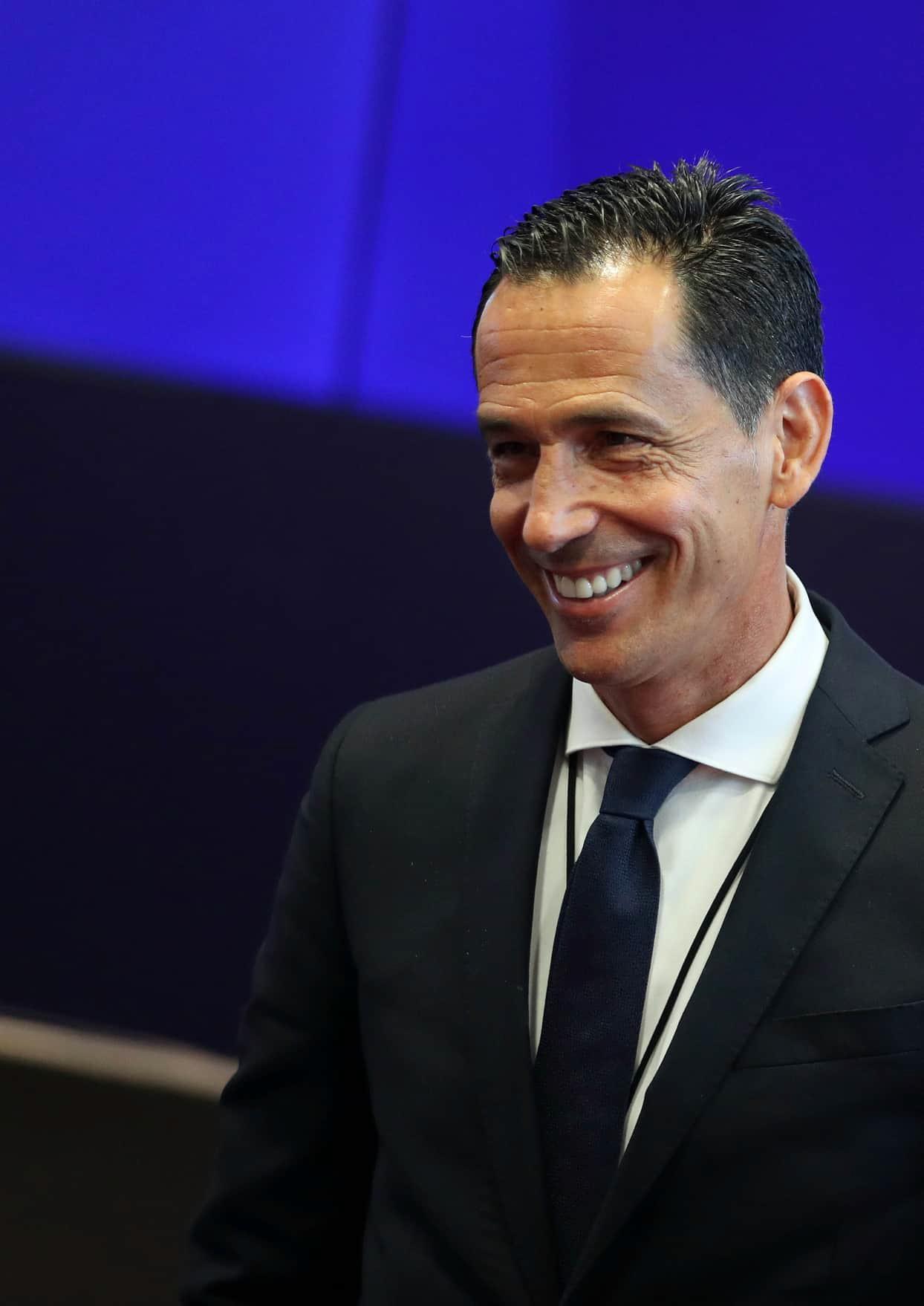

The road that brought us here has been a long one. It has taken us eight years of hard work, commitment and, above all, professionalism. But today, Liga Portugal is more stable than ever. And is ready to face the future.
After two terms marked by the urgent need to financially rebuild Liga Portugal with the first term (2015-19) focused on recovery and the second (2019-23) on consolidation the goal has been fully attained. Eight years of positive results have not only allowed us to fight off the risk of technical insolvency, but also establish Liga Portugal as a credible, professional and financially solid institution. It is time for Liga Portugal to assert itself as a major driving force in the development of Portuguese football.
As prepared as ever for the future, we must embrace the challenges that lie ahead. There are many, and they are key to the development of professional football as an industry.
Make no mistake, the next four years will be absolutely critical. The consolidation of centralization of broadcasting rights is an ambition we cannot relent from, as we continue to implement the necessary measures to raise the level of our product. Liga Portugal's internationalization as a brand, in search of new markets, is another of the challenges we will face as we look to enhance the economic value of professional football. It is vital for maintaining the industry's sustainability and in increasing the clubs' competitiveness,
as is in the reduction of context-related costs, for which we will continue to fight.
This strategy plan for 2023-27, drawn up by Liga Portugal in partnership with the EY organization, shows the way forward and highlights the main pillars that should guide us during the next four years. It asserts that professional football competes in the entertainment market, where product offerings are increasingly diversified. The plan makes it clear that supporters must be at the forefront of every decision, given that they are the heart and soul of the industry. It also argues that Liga Portugal must remain on the path of professionalization and integrity, increasing the demands placed on all the participants in the industry. It encourages us to be united in the pursuit of a greater purpose: professional football, and the safeguarding of its interests, for which Liga Portugal serves as the greatest patron. It makes us aware of the need for professional football to serve the community, not shying away from its social responsibility.
This must be the path for professional football over the next four years. A path we must follow with commitment, discipline, integrity and professionalism values that have become the hallmark of the Liga Portugal brand for the past eight years. A brand we wish to keep building upon.

As 2023 draws to a close, Liga Portugal is in the process of closing an important strategic cycle of assertion of the Portuguese professional football brand and industry.
At this point, it is important to reflect on what has been achieved and, above all, what remains to be done in order to achieve the ambitious vision set for Liga Portugal at the start of this cycle. This includes establishing itself as one of the most important leagues in Europe, in consistent alignment with international best practices, while enhancing the economic and sporting value of professional football.
As part of the partnership between Liga Portugal and the EY, an in-depth strategic planning project is underway for Liga Portugal's next 2023-27 cycle.
This work is absolutely critical, given the highly transformative environment in which we currently live. This changing environment is felt not only by the football and entertainment industry, but is also present on a cultural, social and technological level. The strategic planning effort seeks to strengthen and enhance both the Liga Portugal brand and its stakeholders, preparing them for a unique opportunity for Portuguese professional football: the centralization of media broadcasting rights.

Built upon Liga Portugal’s values of credibility, aggregation, talent and spectacle, this plan aims to be the driver of Liga Portugal's activity over the next four years as its response to the challenges on the horizon.
This report summarizes the main conclusions of the strategic planning process by initially outlining Liga Portugal's starting point and the work carried out in the previous cycle, before moving on to the definition of its own vision of the future based on the drivers of change. It concludes with the strategy for the 2023-27 period and the corresponding plan for action.
Finally, it is important to thank all those who have contributed with their time and knowledge to the development of this report that has benefited from dozens of contributions from multiple ecosystems that affect the industry. We wish to thank them all.
The 2019-23 strategic plan was based on five key strategic pillars, which revolved around one critical objective the centralization of broadcasting rights.
The work carried out by Liga Portugal in the 2019-23 cycle has allowed these strategic pillars to become the cornerstone on which the transformation of Portuguese professional football has hinged.
The five strategic pillars resulted in 90 initiatives that are currently being implemented.


Liga Portugal has secured important victories for the Portuguese professional football ecosystem in its latest strategic cycle.
Today, with its new image, it has managed to position itself as the "locomotive" of professional Portuguese football. This has been possible through a tough process of professionalization and rigor, which has given it unparalleled credibility among its stakeholders.
During this period, Liga Portugal has shown commercial growth, which has allowed it to consistently achieve positive financial results.
This has allowed for the creation or restructuring of five departments and in attracting talent to meet the organization’s growing needs.
Similarly, to better address these challenges, Liga Portugal has increased its competencies through a corporate reorganization
that has led to the establishment of five new companies, that began operating in June 2023.
In 2021, a decree was approved that aimed to implement the centralized sale of the broadcasting rights for Liga I and Liga II matches by the 2028-29 season. This initiative will allow for an increase in the value of these rights and a more equitable distribution of the proceeds between clubs.
At the same time, during this period, Liga Portugal has developed projects, such as the Portuguese Professional Football Yearbook, Thinking Football Summit, the construction of Liga Portugal's new headquarters and a state-of-the-art learning center with new postgraduate courses, among other initiatives of national and international significance. All these reinforce Liga Portugal's role in the transformation of professional Portuguese football.
Professional Portuguese football is part of a larger industry: entertainment. As such, Liga Portugal and professional Portuguese football will not only have to utilize new opportunities and paradigm shifts that are prevalent in the entertainment industry, but it will also have to face and overcome challenges.
The fan is at the heart of our business, and we must realize that we answer to them first. Football's popularity and cultural importance makes it a fundamental part of the entertainment industry, but big challenges lie ahead.
Even though Liga Portugal and Portuguese professional football compete in the entertainment industry, their main activities are football competitions.
Against this backdrop, when compared to the main European leagues, Portugal has fluctuated between 6 and 7 places in the Union of European Football Associations (UEFA) ranking. It slipped to this position in the 2022-23 season, which will result in the loss of qualification spots for European competitions in the 2024-25 season.
The reasons for this dip are mainly due to the Portuguese teams’ inability to accumulate significant points in the Conference League a competition that gives out a very similar number of points to the other competitions unlike teams in the Netherlands. In the 2021-22 season, 65% of the Netherlands' points were scored in the Conference League, while only 9% of the points scored by Portuguese teams were earned in this competition.
Share of the total 2021-2022 points won in the Conference League
Liga Portugal and professional Portuguese football Football Sport Entertainmentof Portuguese GDP in 2021-2022 comes from professional football 0,29%




The football industry is finding itself at a particularly transformative juncture, with both exogenous and endogenous forces shaping its future, making it critical that these are accounted for when drafting Liga Portugal's strategic cycle for the 2023-27 horizon.
The increase in investment and football's inclusion in the entertainment industry has led to greater levels of professionalization.

Changes to international competition formats, as well as the development of women's football and eSports, will have an impact on the industry as a whole
+• Enhancing football’s value as an entertainment product
• Using data analytics
• Increasing investor numbers
• Developing new business models
• Developing new financial fair play models
• Obtaining sponsors from new industries
• Developing new competition formats
• Promoting the importance of women's football
• Promoting the importance of eSports

• Increasing player influence
• Emergence of new broadcasting landscape
• Growth of sports betting markets
• Growth of Web3
• Increasing responsibilities for governing bodies
• Increasing regulations of sponsorships
The football industry is increasingly becoming more professional and is demanding greater professionalism from those who work in it.
It is not possible to have a full page to mark the beginning of each topic(1,2,3,4)and then the following pages with the content? (like the example on the right)
(Pedro R Correia de Sá)
Enhancing football's value as an entertainment
The football industry has increasingly become an entertainment product and not merely a sports product.
This paradigm shift has been driven by the growing demand from clubs for value-creating initiatives that lead to an increase in revenue and an improvement in sporting standards. This is also driven by an interest from supporters who are keen to enjoy distinctive and exclusive experiences.
• As such, the development of new experiences and content in football is key to attracting and retaining more consumers and to compete in an increasingly global and diverse entertainment industry.
• This approach to enhancing football's value as an entertainment product will help to reach newer audiences and diversify revenue streams. It will also help diversify risk and increase overall awareness of the game.
• Currently, several clubs are capitalizing on this trend by developing lifestyle and entertainment brands, as well as by investing in the marketing and digital spheres.
With growing competition, stakeholders in the football industry have increasingly sought to achieve competitive advantages, with data analytics and artificial intelligence (AI) proving to be the most widely adopted solutions.
The introduction of data analytics tools is particularly prevalent in the recruitment, performance analysis and commercial departments, and has a high potential for value creation, especially when combined with AI. Using the data collected, AI allows for the development of models to predict match outcomes and athlete performance, as well as in improving the fan experience, such as through personalized content.
In recent years, there has been a substantial increase in the creation and strengthening of data analytics and AI teams within clubs, as is the case with Manchester City, FC Midtjylland and Brentford F.C. football clubs. In a similar vein, in order to improve and increase the efficiency of the data analysis process, we are witnessing greater technology investments for collecting and processing athlete information (e.g., wearables, optical tracking and AI), as has been the case with Liverpool F.C. and Arsenal F.C. clubs.
With regard to personalized content, real-time statistics are already being made available. This is the case with the Bayern Munich club with their introduction of in-stadium screens that provide additional information and support for matches, increasing fan engagement and improving their experience.
On a national and international level, the number of club investments has increased, as have the sums being invested, particularly for those from North America.
In the main European leagues, a large number of clubs are already controlled by foreign investors, as is the case for 36% of the teams (seven) in the Liga Portugal Bwin.
This increase could help accelerate the professionalization of football by bringing in more capital and promoting best practices. However, it is crucial that the competent authorities monitor these investments, ensuring alignment in the creation of long-term value between clubs and investors, and to promote sustainable investments in the long run.
The growing professionalization of the football industry, greatly impacted by increased foreign investment, has led to the emergence of new business models, such as the multiclub ownership (MCO) model.
This is based on the acquisition of different sports teams by a club or company, and its value proposition lies in the creation of synergies, economies of scale and in the optimal allocation of resources.
This model has been growing in popularity, largely due to the emergence of large groups (e.g., City Football Group and Red Bull).
In Portugal, there has been an increasing presence of these groups, such as the Casa Pia, SDUQ or Estoril Praia and Futebol SAD MCO clubs.
In 2022, globally, there were 195 clubs controlled by MCO groups, a number that has since increased in 2023.







The pandemic was the perfect catalyst for UEFA to amend the financial rules imposed on clubs. The new Financial Sustainability Regulations, as they are known, will come into force in phases between 2022-23 and 2025-26 and are based on three pillars: stability, solvency and control.
The previous system was based on two fundamental parameters: absence of debt and the break-even rule. Both have been strengthened, first, by the solvency pillar, which will guarantee greater protection for clubs' creditors through quarterly, not biannual, checks on accounts and with aggravating factors for payments, which are more than 90 days late. The second strengthening is through the stability pillar, which will maintain the break-even requirement, but with amendments intended to encourage investment through equity.
The third pillar is the most significant development, as it caps the ratio of total costs associated with the squad to a clubs’ revenue at 70%.
These rules will affect the operations of the clubs they cover and will have industry-wide ramifications.
The increased globalization and popularity of football has turned clubs and leagues into popular spectacles that can provide enormous exposure for sponsoring brands.
This has led to growing interest from brands in the industry, increasing demand for advertising space and, therefore, increase in its value. This surge, which has been particularly acute over recent years, places restrictions on the companies and sectors that can afford such an opportunity. Thus, new industries are gaining prominence as sponsors of the different stakeholders in European and national football. This is also the case with the sports betting industry, cryptocurrencies, nonfungible tokens (NFTs) and blockchain.
It is expected that sponsorships from companies in these industries will continue to rise, given their early stage of maturity, and that they will continue to establish themselves as important sources of revenue in the football industry's future.

The transformation, globalization and industrialization of football has culminated in a rethinking of competition formats. This is steering football toward a global landscape, with international competitions gaining prominence over national ones.
This trend is apparent by changes made to European competitions, such as the UEFA Champions League, UEFA Europa League and the UEFA Conference League, and to international competitions, such as the FIFA Club World Cup. These will feature revamped competition formats from 2024-25 onward, with a larger number of teams, matches and possibly increased revenue.
This transformation will have an impact on national stakeholders, either directly through the disruption to competitive calendars, or indirectly via the financial imbalances caused. This impact can threaten to widen the gap between the clubs that participate or do not in these competitions.
Women's football has shown great growth both nationally and internationally. This is fueled by an increase in the number of players, attendees, competition prize money (e.g., 900% increase in Women’s World Cup prize money between 2007-23) and by investments in the sport from football's governing bodies.
In Portugal, the number of practitioners almost doubled between 2015 and 2020, from 5,766 to 11,200 registered players.
This development provides an opportunity for clubs and leagues to diversify their income streams and expand their fan base.
Women’s World Cup prize money (in millions of dollars from 2007-2023)
New technologies have brought new dimensions to the football ecosystem, with eSports taking center stage. This market has seen significant growth in the number of spectators worldwide, a growth that has been accelerated by the COVID-19 pandemic.
The growth in the number of spectators has also been accompanied by a growth in revenue, mainly due to the increasing value of advertising contracts. These factors have attracted more and more stakeholders to the football industry, such as new leagues and clubs.
The eSports industry, in addition to seeing growing spectator numbers and related revenues, also appears to be a vehicle for increasing engagement with younger audiences.
It is, therefore, important to define a strategy capable of optimizing eSports as a source of revenue for clubs and as a gateway to young audiences of the traditional football industry.
Global eSports viewership (in millions of people from 2018-22)
eSports revenues in Portugal by segment (in millions of euros from 2017-22)



As technology progresses, football fans now have a wider range of entertainment solutions to choose from that has changed the way in which sports content is consumed. Increasingly, fans are turning to their smartphones and mobile apps to consume information about their favorite club and players, as well as to watch live matches.
Nevertheless, this diversification of entertainment options can have a detrimental effect on the fans' ability to fully concentrate, leading to shorter attention spans. Indeed, with multiple sources of information and entertainment competing for a fan’s attention, it may be difficult for them to become deeply involved in a single activity.
This may have implications in the way fans watch football matches, especially when they are using mobile devices to view these matches. Instead of watching the full game, many fans prefer to consume short clips and highlights, which can detract from the full experience of watching an entire football match.
The average fan profile is experiencing a major shift with new dynamics emerging, regarding the channels they use to consume football content, particularly given the entry of new players in this field.
Nontraditional media, such as social networks with content in a short vertical format and streaming platforms (e.g., TikTok and Twitch), have been gaining ground over traditional media. This is putting pressure on clubs, leagues and other industry stakeholders to focus on producing content compatible with these new channels.
These shifting market dynamics present new opportunities for personalized interactions with fans, especially in the younger age groups, and should not be ignored by the various stakeholders.
The growing use of social media has not only given top professional athletes greater exposure, but it has also presented an enormous ability to influence society, particularly fans.
Athletes are the most effective vehicles for creating a connection between brands and fans, according to the fans themselves. Players can outperform coaches, fan groups, leagues and even clubs in this category.
Therefore, leveraging athletes with a huge popularity on different social networks as well as a high media impact can be an opportunity for the different stakeholders in the football industry. This can help to increase engagement with fans and explore the potential for creating additional revenue sources.
The market for the broadcasting rights for sports content has undergone several changes, in terms of both supply and demand.
In the years leading up to the pandemic, there was a general increase in the value of broadcasting rights due to favorable competitive circumstances. However, postpandemic, there was a slight decrease in the renegotiation of these values in the TOP5 European leagues.
The market has, however, been disrupted by the entry of new players (e.g., over-the-tops (OTTs) and big techs), which has led to a degree of fragmentation that could contribute to an increase in contract value.
On the demand side, there has been growing interest in non-live content (e.g., behind-the-scenes and documentaries), especially of an exclusive or distinctive nature.
For the leagues, and especially for Liga Portugal, given the pre-centralization scenario, this new broadcasting landscape could not only present some risks, but also opportunities that should be studied and taken advantage of.
Change in the value of broadcasting rights renegotiated after 2019-20 for the TOP5 leagues, according to UEFA is -2,2%
In 2022, Apple TV acquired the rights to broadcast the MLS for US$2.5b for the next 10 years.


DAZN has acquired the rights to broadcast La Liga matches for five seasons from 2022 to 2027.


Source: Nielsen Sports
The Portuguese and European sports betting industry has experienced high growth, largely boosted by the COVID-19 pandemic. It is expected to continue growing in the short and medium term, particularly, the online betting market. According to the Portuguese Gambling Regulation and Inspection Service (SRIJ), football accounted for around 70% of the total volume of online sports betting in the country in the 2021-22 season. The Portugal bwin League accounted for around 8% of the total amount wagered on football.
It is, therefore, easy to conclude that the sports betting market is increasingly embedded within the football industry. This connection not only provides an opportunity to create revenue for its various stakeholders, but also an opening to get closer to supporters, through the enthusiasm and connection that football betting can foster.
Volume of sports betting and number of licenses awarded (in millions of euros from 2018-22)
Web3 is having a growing impact on the world of football, with more and more stakeholders embracing this technology. Although most of the current income is still being generated from advertising contracts, there is a huge potential for the use of Web3 tools and technologies to create new sources of revenue. This can be through the monetization of virtual assets, such as NFTs and tokens, as well as through the exploration of new forms of fan engagement.
Several international teams and leagues are already exploring the functionalities of Web3, mainly through NFTs and the broadcasting of matches in the metaverse. NFTs, which are unique, non-fungible digital assets created on the blockchain, have been particularly popular in the football industry, allowing for the creation of authentic virtual assets that depict historical moments, images and videos related to the sport. Similarly, tokens, that can represent a stake in a club or league, offer potential as a form of investment and financing.
The metaverse also offers innovative opportunities for clubs and football fans. Through this technology, it is possible to create real-world simulations where fans can interact and participate in sporting events in an immersive way. Games in the metaverse are increasingly being used at sporting events, allowing fans to interact with other fans, players and teams in a completely new way.

In 2022, a match between clubs AC Milan and Fiorentina was broadcast on the metaverse.


Paris SG, Juventus FC and Atlético de Madrid clubs have created NFT collections.

Manchester City has partnered with Sony to recreate the Etihad Stadium in the metaverse.
Sources: Portuguese Gambling Regulation and Inspection Service (SRIJ); EY Analysis
The football industry has shown a growing concern for social issues by using its media coverage as a vehicle for social change.

Instances of poor transparency and anti-corruption practices in some of the main governing bodies of international football (e.g., FIFA and UEFA) have had a significant media impact, threatening the credibility of the industry.
In this background, there has been mounting pressure from fans and industry stakeholders for the implementation of practices to enhance transparency and fight corruption in the sport.
In the face of this pressure, it is clear that there is a need to react in order to protect the industry and its value in the eyes of the consumers who are increasingly growing sensitive to social and ethical issues.
Thus, the governing bodies have implemented practices to promote transparency and fight corruption, which are included in their strategic plans, for instance through mechanisms for ethical and investment control. Such is the case with UEFA and FIFA. There are also growing discussions about monitoring the source of investments received by clubs.
The high level of public scrutiny is expected to continue, forcing governing bodies, leagues and federations to implement increasingly demanding standards in promoting transparency and anti-corruption practices.
Source: governing bodies’ websites
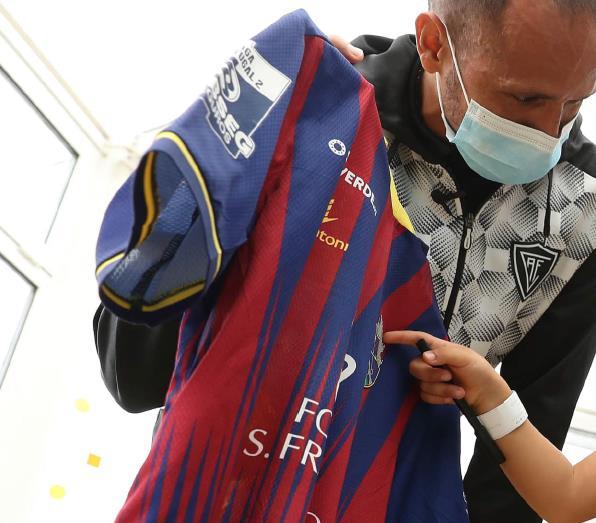
The football industry, through its key stakeholders (e.g., federations, leagues, clubs and athletes) has taken advantage of its wide-spread media coverage to stimulate the social development of young people through the sport, especially in underprivileged communities.
Portugal has followed this international trend with the creation of education and inclusion programs for young people by both institutional bodies (e.g., the Football Foundation) and by its clubs.
Football's ever-increasing media role and as an influencer makes it an excellent catalyst for social responsibility and education among young people. This practice is becoming increasingly widespread among the industry's main stakeholders.

The various social, ethical and environmental concerns that are being felt globally have been a concern for this industry, which has been giving pride of place to the promotion of sustainability through responsibility.
Thus, the main international governing bodies, (e.g., FIFA and UEFA), have been adopting policies in their strategic plans that provide solutions to further develop football as a means of promoting sustainability, fighting for social causes and in creating a positive impact on the world.
Therefore, it has become essential, given football's role and impact, that the relevant national and international entities, such as Liga Portugal, seek to have a sustainable and socially positive impact.
The sharp growth in the Portuguese and international sports betting market could pose some risks to the football industry, mainly regarding negative press coverage, resulting from the harmful addictive tendencies this activity can provoke.
Some of the international football regulators (e.g., federations and leagues) and local governments have already implemented mechanisms to control and restrict the involvement of sports betting companies in the football industry.
Given the professional Portuguese football industry's high exposure to revenues connected to the sports betting industry, an assessment of current and potential risk is paramount.

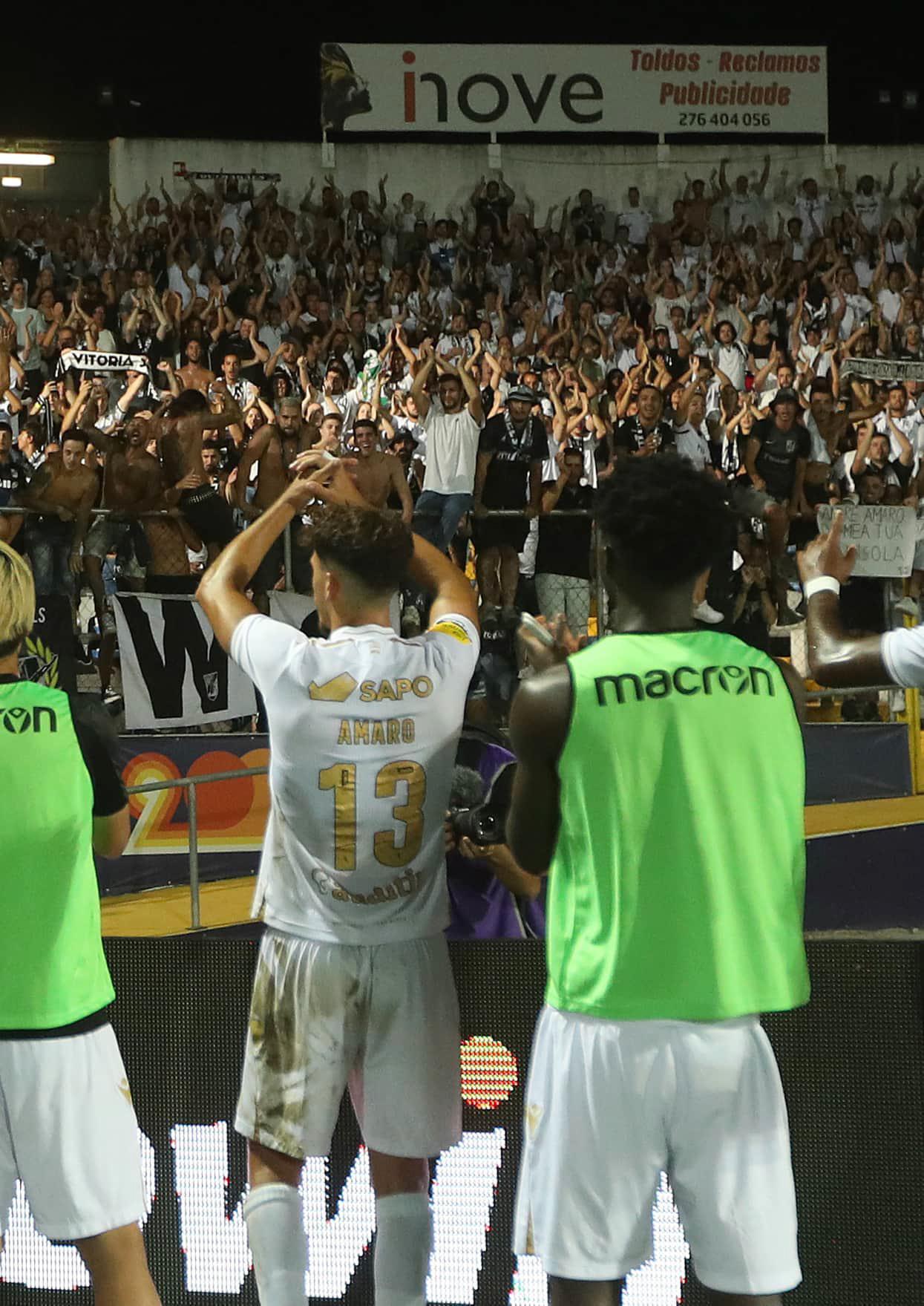
1 Fostering greater proximity with the fans
2 Boosting the value of clubs
3 Increasing competition value, while keeping women’s football in mind
4 Developing Liga Portugal
5 Internationalization of Liga Portugal
6 Centralizing broadcasting rights
7 Reducing specific context-related expenses

Professional football is experiencing a period of radical change, particularly with regard to supporters key figures in this sport and industry.
As the industry has grown, a financial perspective has emerged as the main consideration. This has, sometimes, damaged the relationship with football supporters. It is, therefore, crucial to understand their consumption patterns and the ways in which they are changing in order to devise strategies that allow for an effective reconnection.
Promoting grassroots football and reconnecting with fans
In Portugal, FC Porto, SL Benfica and Sporting CP, the big three football clubs, attract the bulk of fans. In order to reverse this situation, local clubs need to be reinvigorated by providing them with better playing conditions and offering fans a more attractive experience. It is important that clubs increase their footprint on social media and create new marketing strategies to attract a younger and more diverse crowd. In addition, clubs should strengthen ties with local communities, promoting initiatives that engage with local schools and associations. Developing a sense of belonging and identity with the club is essential if local fans are to be drawn closer.
The need to improve domestic football facilities
There is an urgent need to promote the modernization and improvement of sports venues to enable newer and better fan experiences. In Portugal, many clubs face serious shortcomings with regard to the stadium quality, with no financial means to refurbish them.
Football as a spectacle for all
It is vital that matches be transformed into football spectacles, ensuring the experience starts before the kickoff and lasts until after the final whistle. It's important to promote a festive spirit and treat opposing fans as guests, helping to foster a healthy competitive climate between fans. This change in the fan and club mentality can help increase stadium attendance, making the stands safer and turning into a more enjoyable place.
Shift in supporter profile
Lastly, with the growth of the football industry and technological progress, fans have increasingly turned digital and become multi-taskers. Smartphones have become a complementary tool to the matchday experience, both at home and in the stands, reducing the fan's attention span. Moreover, OTT platforms and big tech, at the expense of traditional audiovisual media, have been gaining ground in the football content market by delivering exclusive coverage.
Football fans are also increasingly valuing an experience that goes beyond the game itself, which requires a key contribution from specific infrastructure.
At a time when Portuguese professional football is facing major challenges, it is crucial to help clubs in their development, particularly regarding financial aspects, given the threats to Portuguese football's current business model, which is based on training, development and sale of talent.
Financial sustainability
Currently, most clubs in Portugal are reporting an operating loss and are reliant on the sale of assets, i.e., player sales, in order to achieve profitability.
With a view to the sustainability of professional Portuguese football, it is important that Liga Portugal promote a narrower gap between club revenues and expenditures, reducing the weight of player wages in proportion to total revenues. This will allow for positive operating results and a stronger ability to retain and value talent.
Furthermore, the UEFA's new financial control regime, called the Financial and Sustainability Regulations, will put even more pressure on clubs, especially when it comes to controlling costs and paying off debts. Therefore, it will be important for Liga Portugal to monitor the clubs' progress in complying with these standards.
Greater professionalizationand new skills
In addition to financial skills, clubs must develop skills in fields such as data analytics, marketing and digital communications. This will allow them to enhance their brand, improve sporting performance and bridge the gap with fans, which will bring in additional revenue. In turn, this will generate a virtuous cycle of growth that will enable Portuguese professional football to enhance its longterm value.
Liga Portugal is positioned to play a critical role in the development and centralization of its expertise, reducing asymmetries between clubs.
Increased investment in professional Portuguese football
One factor that has aided clubs in boosting their financial position is the influx of capital from new investors, an international football industry trend, that has also been observed in Portugal. Increased investment eases the access to funding, which can be beneficial. However, Liga Portugal will need to safeguard clubs, promoting the creation of long-term value for both the organization and the local community.

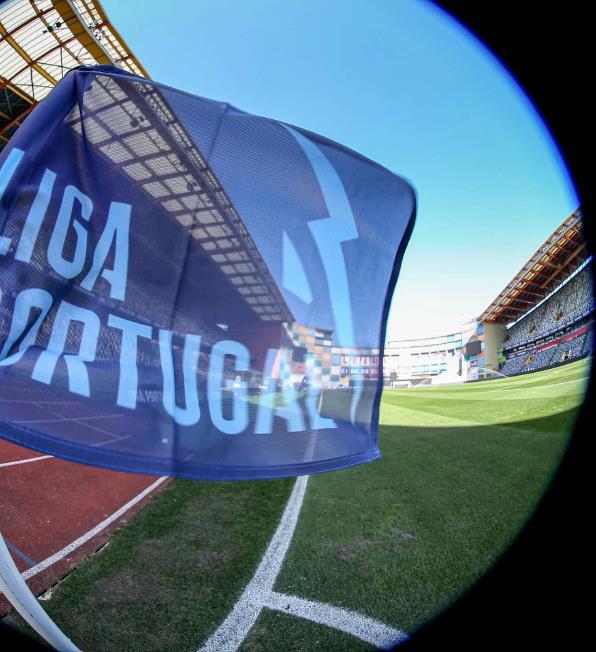
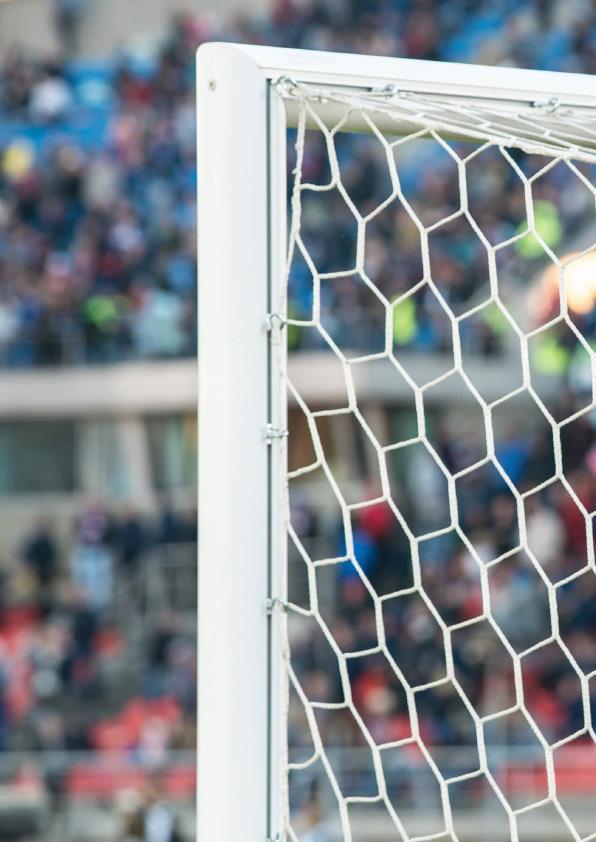
The growing transformationand industrializationof football has brought about changes to European competitive formats and strengthened European and international leagues. Likewise, there has been a positive evolution in women's football. These paradigm shifts pose challenges and opportunities for national leagues, and hence, for Liga Portugal and professional Portuguese football.
UEFA recently approved changes to its competitions, the Champions League, Europa League and Conference League, that come into effect as of the 2024-25 season. The main change is the abandonment of the traditional group stage in favor of a new league format with an increased number of matches to be played.
FIFA will also introduce a new competitive model for the FIFA Club World Cup, that will follow a similar route, as of 2025. These changes will increase the revenue generated (through new broadcasting deals and additional media events) and exacerbate the financial imbalances between participating and non-participating clubs.
Thus, the football industry is moving towards a global landscape, with international competitions gaining in importance over domestic competitions.
Low internal competitiveness and threats from other national leagues
There are considerable asymmetries in the competitiveness of professional Portuguese football due to the low average number of goals, low effective playing time and a high number of drawn matches, when compared to the other TOP7 European leagues. In addition to the difficulties mentioned above, other national leagues have emerged on
the European and international scene. In Europe, the Dutch league has been improving its performance in the UEFA rankings and has been directly rivaling Liga Portugal. On the international stage, the growth of leagues in the Middle East and South America, especially Brazil, has made it increasingly competitive and difficult for Portuguese clubs to acquire young talent at affordable prices, challenging their business model of buying, developing and selling players.
The growing prominence of women's football
It is also vital to reflect on the state of women's football and its increasing importance to the professional landscape, driven by growing viewership and participants domestically and abroad. It is becoming ever more important to account for this segment, that may well be on the way to professionalization.
In short, it is essential to increase the competitiveness of Portuguese professional football in order to improve its quality and appeal as it looks to tackle the great pressures of international competitive models, for which the role of Liga Portugal is crucial. Furthermore, Liga Portugal must accompany the development of women's football with a focus on the eventual professionalization of the sector.
The growing complexity of the Portuguese and international professional football scene requires Liga Portugal to pursue constant development and improvement in order to sustain its growth and more effectively drive the paradigm shift in the industry.
At a time of great upheaval, organizational nimbleness is crucial. In this sense, the possibility of a revised governance model, based on that of benchmark leagues, should be considered, so as to streamline the decision-making process and keep up with evolving competitors in other leagues.
A review of Liga Portugal's financing model
Likewise, it is essential to review Liga Portugal's current financing model, and better prepare it for an era of centralized broadcasting rights.
Fostering closer ties with stakeholders
On the other hand, there is also an urgent need to strengthen Liga Portugal's ties to all its stakeholders, but particularly clubs and Portuguese governing bodies, in order to promote a concerted effort to boost
professional football in Portugal. Strengthening Liga Portugal's non-football footprint
Furthermore, Liga Portugal should look to continue to bolster its brand by pursuing involvement in non-football initiatives (e.g., Thinking Football Summit). This sort of activity allows for the development of brand reach and recognition among stakeholders, whilst contributing to a favorable trend in the perception of professional Portuguese football.
Revision of the human resource strategy
Liga Portugal must outline a human resource strategy in order to attract and retain the best talent available to address the needs of the Portuguese football ecosystem. This will allow Liga Portugal to effectively respond to challenges and stand out as the driving force behind professional Portuguese football.

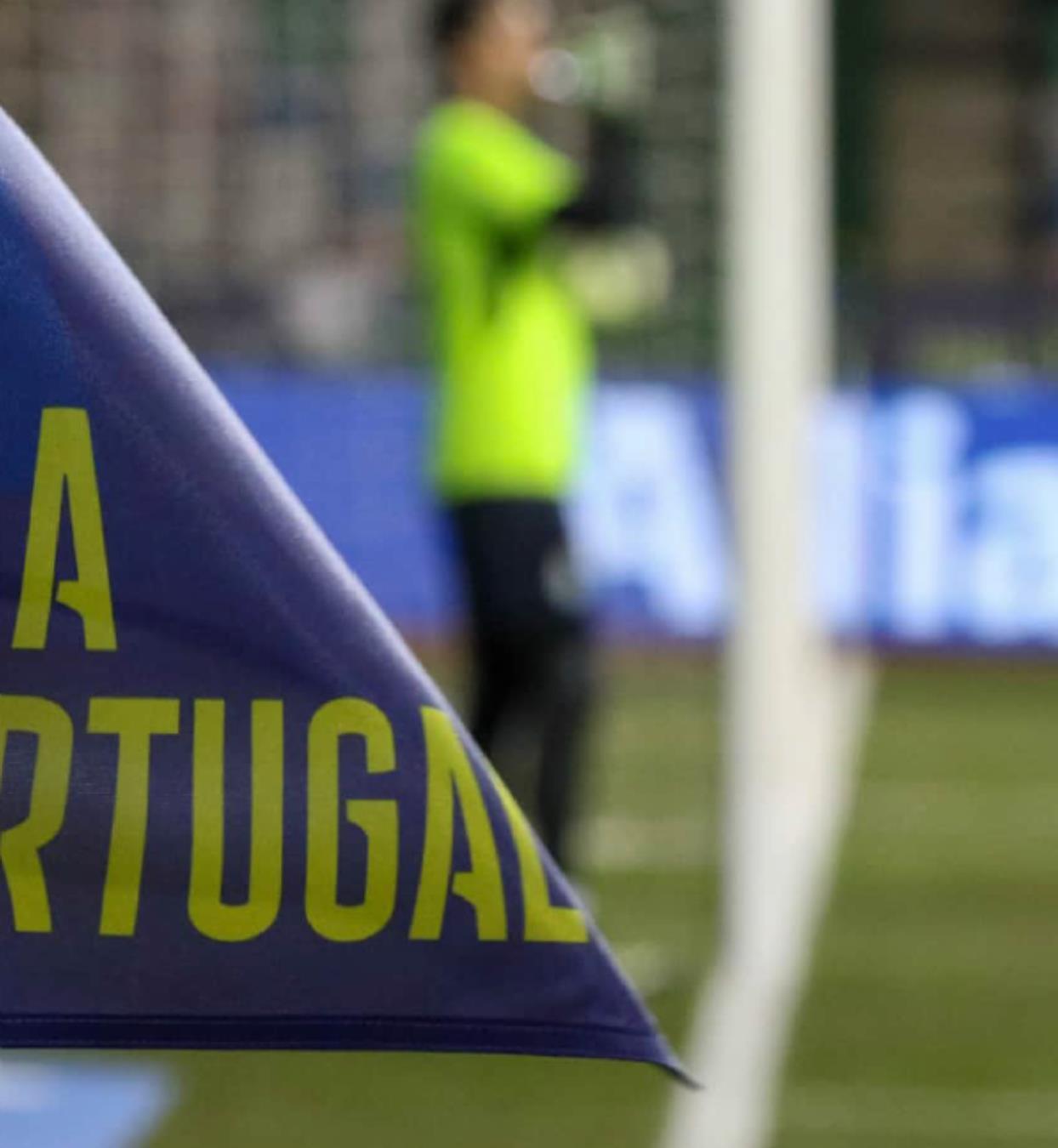

Globalizationhas increased the relevance and importance of international markets in European professional football leagues, especially when it comes to broadcasting income. Therefore, given the forthcoming centralizationof broadcasting rights and the importance international media markets can have for football revenues, it is imperative that Liga Portugal prioritizes and carries out a successful internationalizationcampaign.
Firstly, it is crucial to understand current interest and popularity levels of the Liga Portugal competitions in the various international markets. Such an analysis will provide an understanding of the markets where Liga Portugal matches are already broadcast and their viewership figures, making clear which markets still have potential for growth.
Liga Portugal's global positioning
On the other hand, it is crucial for Liga Portugal to position itself internationally in the right way. Given the high degree of competition in the market, international markets are already saturated, making it crucial for Liga Portugal to offer a distinctive value proposition that will enable it to reach untapped audiences, whilst taking advantage of the unique selling points of its competitions (e.g., high levels of youth talent). It is also critical that the right markets be reached, taking into account the historical and cultural backdrop, and focusing on markets with historical ties to
Portugal, the Portuguese diaspora or even the home countries of athletes playing in Liga Portugal competitions.
Collaborative internationalizationof professional Portuguese football
It is also vital that the challenge of internationalization be tackled by professional Portuguese football as a collective. The most prominent clubs in Portugal are already global brands that promote Portuguese football overseas. It is therefore imperative that Liga Portugal work together with these clubs to create synergies for the internationalization process, that stand to benefit the industry as a whole.
Therefore, tackling the challenge of internationalization is a matter of great urgency for Liga Portugal. This is especially true given the current climate of pre-centralized broadcasting rights, since the proceeds from the international sale of these rights could account for a significant increase in revenues.
The implementation of Liga Portugal's 2019-23 strategic plan, which was geared towards securing approval for the centralizationof broadcasting rights, was ultimately successful when, in February 2021, such an agreement was reached, valid through 2028-29 season.
Centralization is vital for Portuguese football, as it will improve the financial conditions between clubs, thus creating a better competitive balance for development. However, it will also entail a host of challenges that will have to be addressed by Liga Portugal and professional Portuguese football.
Boosting the commercial value of the broadcasting rights
One of the main challenges related to the centralization is the price at which the broadcasting rights will be sold. In the years leading up to the pandemic, the fees negotiated for the top European leagues grew at a rapid pace, but this growth slowed following the pandemic, with some of the contracts being adjusted downwards, which may pose a risk.
The creation of favorable market conditions
Another challenge posed by this process is the need to foster favorable market
conditions for the sale. The growth in value of broadcasting deals in Portugal and the main European leagues was underpinned by a favorable competitive landscape (e.g., highly competitive environment between operators; penetration of satellite TV). These competitive conditions have since changed, however, and it is crucial to keep on top of current market dynamics. Currently, the broadcasting industry is extremely fragmented, given the emergence and growth of various OTT (over-the-top) platforms. The emergence of Big Tech companies looking to acquire broadcasting rights and shape their product offering in their own image (e.g., MLS and Apple TV) is having a similar impact on the market. It is, therefore, critical that Liga Portugal take advantage of the current market conditions, with a view to extracting as much value as possible from the centralization process.
The centralization of broadcasting rights is a fundamental tool at professional Portuguese football's disposal, though it will prove a challenge-laden process, and must be handled as such by the industry's stakeholders and particularly by Liga Portugal.

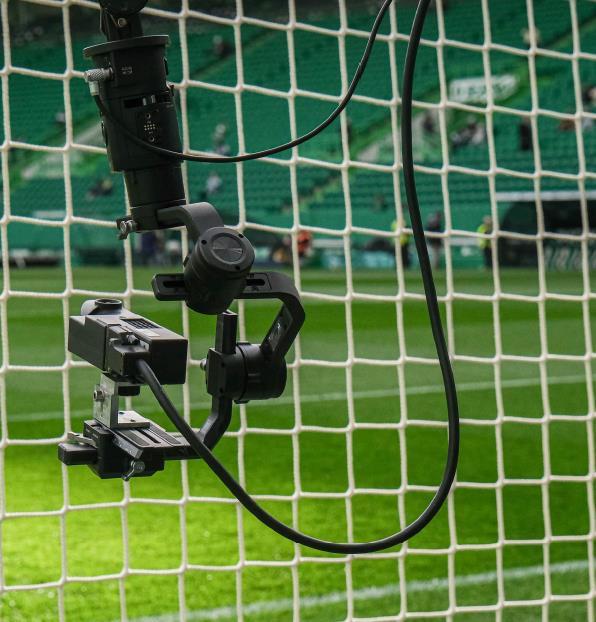

The football industry ranks as one of the industries that affords Portugal the most exposure overseas. Nevertheless, there are various context-related expenses that stand in the way of developing the competitiveness of Portuguese football, hindering its ability to compete with foreign clubs and leagues.
Sports betting revenue sharing
Sports betting plays a pivotal role in the revenue structure of Liga Portugal and clubs, but the current revenue sharing model has been contested and it is essential that it be rethought, so as to increase revenues for professional Portuguese football.
A fairer and more equitable distribution of sports betting revenues could help improve the clubs' performance and, in turn, the competitiveness of domestic football. With that being said, it is necessary to ensure that the revenue is strategically and efficiently allocated towards projects that are capable of generating value for the industry.
The tax burden on professional Portuguese football
The tax burden on Portuguese professional football hinders its competitiveness. Along with Italy, Portugal is the country where the highest tax bracket (48%) is levied at the lowest absolute figure (€75,009). This heavier taxation imposed on sports clubs makes it difficult to retain talent, since it creates a level of expenditure that hinders financial and sporting competitiveness internationally. Furthermore, it is also necessary that the VAT tax framework for sporting events be revised, bringing it in line with that of other cultural activities. Nevertheless, initiatives such as the "Programa Regressar" have had a positive effect on the reduction of these costs, which highlights the need to create similar measures that can be deployed to improve the competitiveness of professional Portuguese football.
Insurance costs
Meanwhile, the current Insurance Law places an additional constraint on the competitiveness of domestic football, insofar as clubs’ insurance obligations represent a considerable expense. As such, with a view to promoting financial relief for clubs, it is necessary to ensure changes to the current legal regime, which is something that Liga Portugal has already been working on and that is pending approval by parliament.
In short, these issues have significant impacts on clubs and on the competitiveness of the professional game in Portugal, making it essential that the costs imposed on clubs be slashed and that betting revenues be shared more favourably, due not only to the importance of the sport in terms of representing Portugal abroad, but also in order to make professional Portuguese football more competitive and considerably elevate it on the international stage.


Vision
To establish itself as one of the most important leagues in Europe, in consistent alignment with international best practices, whilst enhancing the economic and sporting value of professional football.
Mission
To ensure excellence in the organization of competitions, while fully respecting the economic and financial sustainability of the institution and its affiliates.
Values
• Credibility
• Aggregation
• Talent
• Spectacle
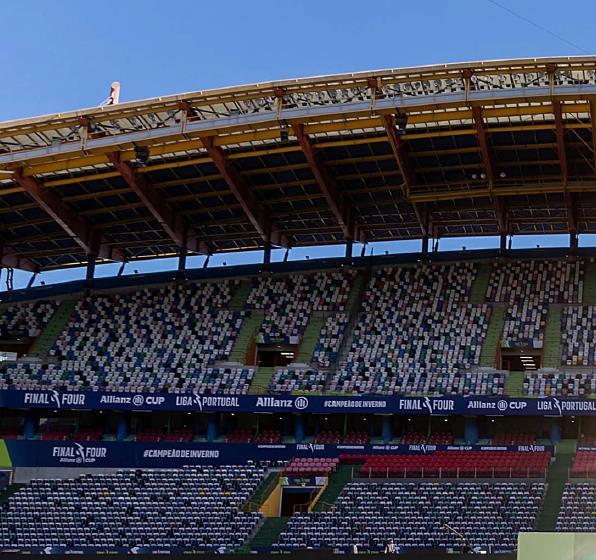
 Commitment to supporters
Enhancing the product
Uniting all parties
Social responsibility through football
Commitment to supporters
Enhancing the product
Uniting all parties
Social responsibility through football

The supporter commitment pillar places the supporter at the heart of the approach. It is critical to get to know them, bring them closer to football, monetize them and increase their awareness
The pillar for supporter commitment is made up of four strategicpriorities:
• To better get to know supporters, assessing their consumer habits, location and purchasing power
• To bring fans closer to the spectacle of football
• To monetize supporters by developing a fan-focused commercial strategy
• To raise awareness among supporters by promoting positive behavior
The product enhancement pillar aims to establish Liga Portugal's competitions as high-quality entertainment spectacles, while simultaneously improving the perception of professional Portuguese football
The pillar for product enhancement is made up of six strategicpriorities:
• To establish the Liga Portugal brand in the football ecosystem
• To develop the brand of Liga Portugal's competitions
• To improve the fan experience in stadiums
• To improve, standardize and regulate the broadcasting of the media product
• To promote the Liga Portugal product and brand internationally
• To ensure a successful centralization process for broadcasting rights
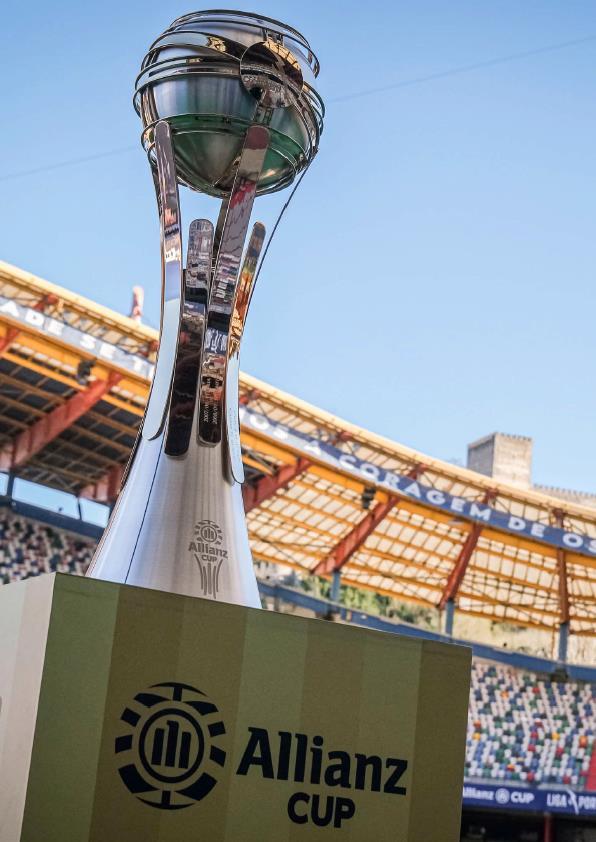
The credibility through professionalism pillar promotes the reputation of the football industry by supporting its growth and consolidation.
The pillar for credibility through professionalismis made up of twelve strategic priorities:
• To rethink Liga Portugal's governance model
• To promote the restructuring and growth of Liga Portugal's organization
• To rethink Liga Portugal's financing model
• To promote the financial sustainability of clubs by creating additional sources of revenue and promoting cost control
• To support the development of infrastructure for professional Portuguese football
• To increase transparency and the fight against corruption in professional Portuguese football
• To promote greater professionalization of sports industry professionals
• To promote the use of technological and digital resources
• To combat negative externalities for the industry, ensuring the quality of the services provided
• To develop mechanisms to streamline financial reporting and control
• To reduce the industry’s context-related costs
• To attract and develop qualified human capital in the professional football industry
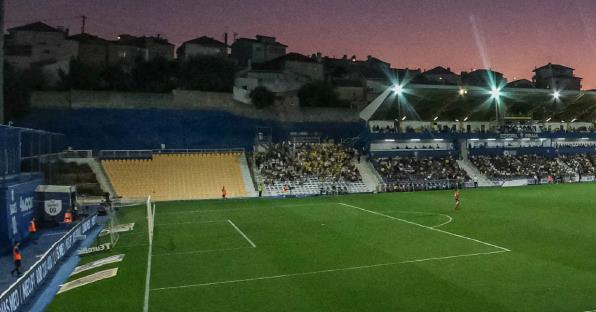
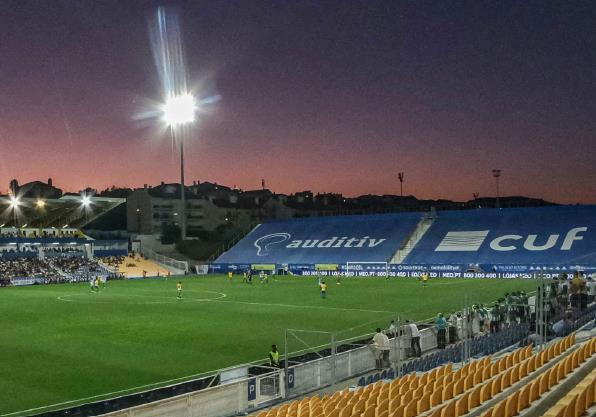
The pillar aimed at uniting all parties is focused on aligning the interests of the numerous stakeholders, by promoting a campaign for the collective improvement of the industry.
The pillar for stakeholder unity is made up of three strategicpriorities:
• To align objectives and interests among the stakeholders of professional Portuguese football
• To promote positive values in the industry
• To support women's football by making it an integral part of our industry
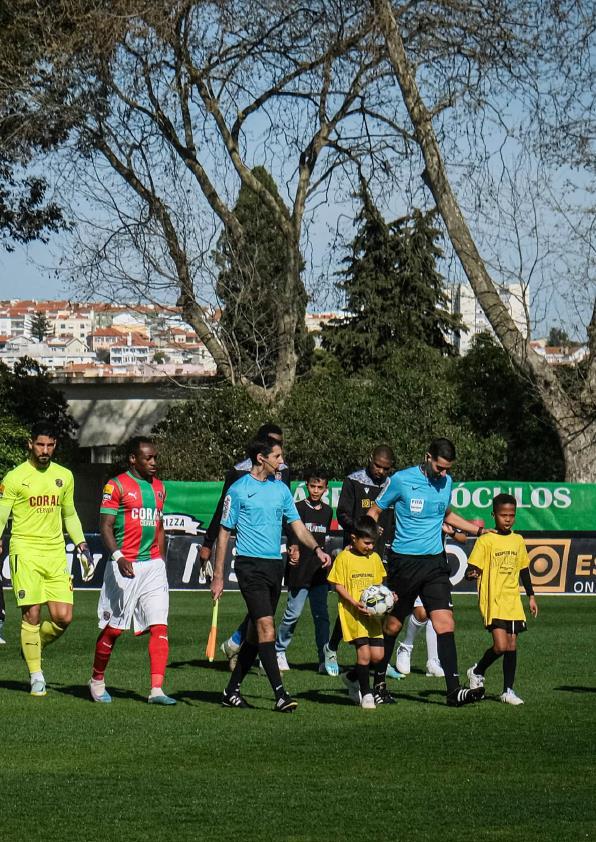

The pillar for social responsibilitythrough football is made up of four strategicpriorities:
• To support professional Portuguese football foundations in their efforts
• To position Liga Portugal in the context of divisive social issues
• To consolidate and strengthen ties with local communities
• To integrate ESG (Environmental, Social, and Governance) standards within the industry
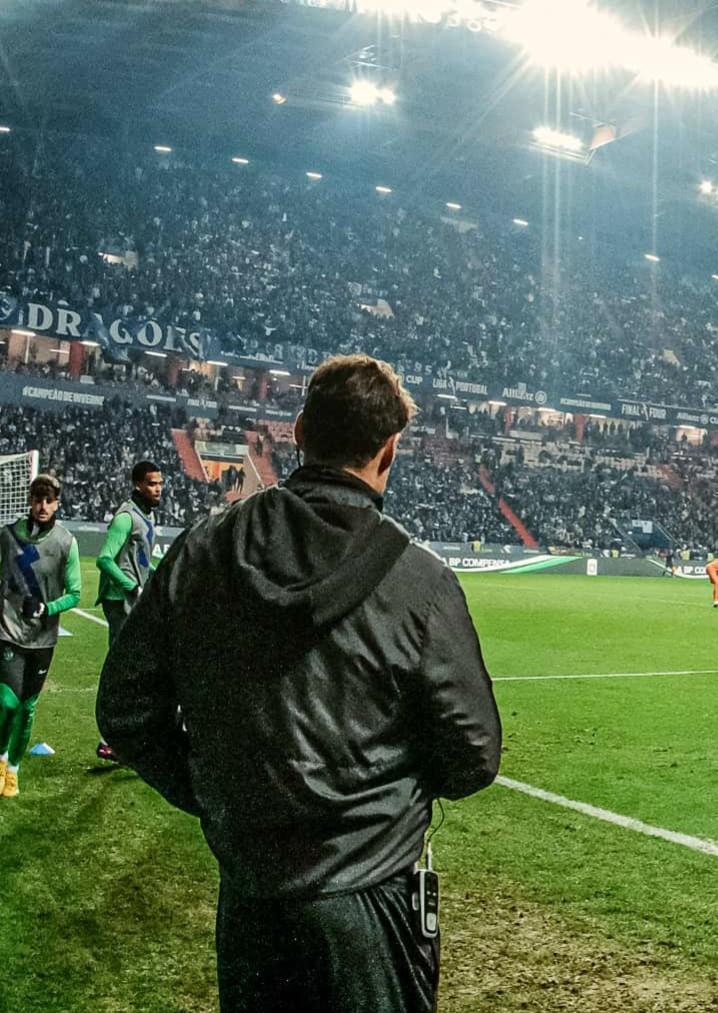

Strategic priority 1.1
To better understand supporters, assessing their consumer habits, location and purchasing power
To objectively segment the different types of supporter, analyzing their consumer habits, location and purchasing power, in order to to develop a targeted strategy per type. A broader understanding of the supporters will enable effective communication and marketing strategies to be developed.
Macro activities
C11 Develop a strategic roadmap for gaining insights on supporters
C12 Leverage the centralized ticketing project to assess current supporter profile
C13 Launch campaigns to encourage the gathering of data on supporters
C14 Develop partnerships with social media companies (e.g.; Meta)
C15 Develop partnerships with clubs, leagues and sponsors to analyze data to get to know current and potential supporters
C16 Create policies and pricing models for modernized ticketing, in keeping with the practices found in other entertainment and leisure sectors
2023-24 2024-25 2025-26 2026-27
Develop initiatives in different areas that increase the proximity of Liga Portugal and professional Portuguese football with its supporters. Given that fans are the backbone of the sport, their involvement is critical to the positive transformation of the domestic football ecosystem.
Macro activities
C21 Develop a digital strategy for Liga Portugal's multiple channels
C22 Encourage clubs to develop their digital strategy
C23 Develop partnerships/sponsorships for campaigns targeting specific segments and locations
C24 Strengthen the ties between eSports and professional football competitions
C25 Create/improve the reach of fan engagement platforms (e.g.; App, fantasy leagues)
C26 Analyze and provide support to clubs in the creation of fan engagement projects
C27 Develop eLiga on a national and international level
C28 Develop specific strategies aimed at different segments of the supporter
C29 Develop a partnership with a children's TV network to broadcast matches in an animated format
C210 Attend non-stadium and non-football events
C211
Develop the Arena Liga Portugal as a tourist attraction and as a hub for fan engagement by creating an immersive, interactive and allencompassing experience across the Arena Liga Portugal Experience's five business units (F&B, Museum, Shop, Kids Center and HighTech Football)
C212
Create prizes that encourage stadium attendance (e.g. best match promotional campaigns; member recruitment; prizes for the clubs who best welcome supporters of the opposing team)
C213 Create the "Fan Passport" - a program that can boost "away days" and encourage less frequent attendees to attend matches
C214 Promote the introduction of drinks with a low alcohol percentage in stadiums
C215 Establish criteria that can promote the optimal schedule for fan attendance in stadiums
C216 Create a plan for influencers so as to position football as a lifestyle event
2023-24 2024-25 2025-26 2026-27
Strategic priority 1.3
To monetizing supporters by developing a fan-focused commercial strategy
Develop the commercial side, based on the passion and proximity that fans have for professional Portuguese football. Monetizing the different types of fans will allow the development of certain revenue streams (e.g., merchandising, ticketing, match-day, etc.).
Macro activities
C31 Redefine the project for Liga Portugal stores
C32 Maximize the revenue streams generated through licensing Liga Portugal's intellectual property
C33 Create a football community through the use of NFTs
C34 Create a Liga Portugal membership program that grants exclusive benefits to fans (e.g.; access to events, merchandise, etc.)
C35 Establish partnerships for the global sale of multiple assets, including merchandising
C36 Create an engagement program (i.e., broadcasting national and international football matches) to increase attendance and bolster Arena Liga Portugal's sports restaurant/bar concept.
2023-24 2024-25 2025-26 2026-27
Strategic priority 1.4
To raise awareness among supporters by promoting positive behavior
Promote awareness campaigns for responsible behavior amongst football supporters. Raising awareness for good behavior amongst supporters is key to creating a safer and more inclusive environment and improving the experience for match-goers.
Macro activities
C41 Create awareness campaigns for supporters
C42 Create appropriate channels for reporting fan misconduct with a view to improve in-stadium experiences
2023-24 2024-25 2025-26 2026-27
Strategic priority 2.1
To establish the Liga Portugal brand in the football ecosystem
Strengthen the establishment of the Liga Portugal brand as a driver of change in the domestic football landscape. This will strengthen, at both national and international level, Liga Portugal's role as a point of reference in professional Portuguese football.
Macro activities
E51
Establish partnerships with companies in the entertainment industry
E52 Promote Liga Portugal as a driving force for innovation in the football industry
E53 Conduct a wide-ranging assessment of the sports industry's best practices and case studies in entertainment
E54 Promote the creation of synergies with and among startups through the new Arena Liga Portugal incubator
E55 Continue to develop activities that boost the Liga Portugal brand (e.g.; Thinking Football Summit)
2023-24 2024-25 2025-26 2026-27
Strategic priority 2.2
To develop the brand of Liga Portugal's competitions
Develop the brand of the different competitions under the Liga Portugal umbrella, promoting their value. Creating and developing an individual value proposition for each of the competitions will better meet different sporting needs.
Macro activities
E61 Evaluate the current structure of competitions in professional Portuguese football
E62 Define each competition's value proposition
E63
E64
2023-24 2024-25 2025-26 2026-27
Define a dissociated (albeit complementary) promotional strategy between the Liga Portugal organization and its many competitions
Construct narratives based on specific football interactions (e.g.; rivalries, disputes, etc.)
E65 Create non-live content by partnering with big tech or OTT platforms
E66 Develop Portuguese football's image by promoting its unique assets (culture, tradition, talent)
E67
E68 Promote the "Football Doesn't Stop" campaign Beneficiaries
Enhance the value of ex-players, by showcasing their relevance through the organization of the Liga Portugal Talent Legends ecosystem
Strategic priority 2.3
To improve the fan experience in stadiums
Strategic priority 2.4
To improve, standardize and regulate the broadcasting of the media product
Enhance the supporter in-stadium experience by improving the quality of the professional football product on offer. Since the in-stadium supporter experience is a key element in the growth of professional Portuguese football, Liga Portugal must ensure the utmost quality in the spectacle it delivers.
Macro activities
E71
E72
E73
Define F&B standards and plans for action at Liga Portugal stadiums
Promote the development of pre-match and half-time events (e.g., create family-friendly pre-match zones and activities, fan zones)
Work together with clubs and local authorities to provide better means of transport to stadiums
E74 Establish guidelines for controlling the flow of people in and around stadiums
E75
Create a team of "mystery shoppers" who will go to matches to assess the fan experience, delivering clubs with reports that can be used to improve upon the experience
2023-24 2024-25 2025-26 2026-27
Regulate and develop the broadcasting of professional Portuguese football’s media content. Regulating and developing the media output may increase its value, particularly when negotiating the centralization of broadcasting rights.
Macro activities
E81 Establish a strategy for improving the media product
E82 Create and enforce media regulations that sets out rules for the holder of broadcasting rights
E83 Enhance media output by creating a TV channel or OTT platform for Liga Portugal
E84 Develop a plan for action to tackle piracy
E85 Introduce national and international best practices for the broadcasting of media products, weighing up their costs and benefits
E86 Create a content strategy for Liga Portugal
E87 Ensure coverage of all televised matches where the master camera is in the stand opposite the one with the most fans.
2023-24 2024-25 2025-26 2026-27
Strategic priority 2.5
To promote the Liga Portugal product and brand internationally
Promote the Liga Portugal product and brand in other locations. International promotion will allow the industry as a whole to grow, by elevating Portuguese football in the global context and by developing additional sources of revenue.
Macro activities
E91
Develop a roadmap for Liga Portugal's internationalization process
E92 Establish partnerships with tourism bodies
E93 Create a plan to expand the broadcasting of Liga Portugal matches to international markets
E94 Internationalize Liga Portugal based on the value proposition of a league made up of future stars
E95 Internationalize the League Cup final four
E96 Promote Liga Portugal and its competitions in key international markets
E97 Leverage the brand recognition of certain Portuguese sporting clubs for a more effective internationalization process for Liga Portugal and its competitions
E98 Support clubs in their internationalization process
E99 Raise sponsors for Liga Portugal's internationalization process
E910 Carry out international campaigns for Liga Portugal ambassadors
E911 Create fan zones abroad
E912 Develop media coverage of Liga Portugal competitions in different countries
E913 Prepare a monthly report on the international performance of Liga Portugal compared to other leagues
E914 Establish Arena Liga Portugal as an international leader in the development and research of football-related sports technology
2023-24 2024-25 2025-26 2026-27
To ensure a successful centralization process for broadcasting rights Strategic
Promote an effective centralization process for its broadcasting rights. Given the imminent arrival of centralized marketing for broadcasting rights, the paradigm shift must be ensured in order to maximize the creation of value for professional football in Portugal.
Macro activities
E101 Develop a roadmap for the centralization process for broadcasting rights
E102
Coordinate the centralization proposal with the Portuguese Football Federation, to be presented to the government by 2025-26
E103 Define the model for distributing funds from post-centralization broadcasting rights
E104 Defining terms for the sale of broadcasting content lots
E105 Assess potential scenarios for the anticipation of the centralization process, namely of the international rights
E106 Prepare a roadshow for the placement of an international bid on the centralization of broadcasting rights
E107 Perform a benchmark analysis of the centralization process of top international leagues
E108 Liaise with the Competition Authority (AdC)
E109 Define general terms and conditions for the usage of centralized contents
E1010 Carry out a study aimed at mapping the locations where Liga Portugal matches are broadcast
2023-24 2024-25 2025-26 2026-27
Strategic priority 3.1
To rethink Liga Portugal's governance model
Beneficiaries and partners
Adapt and modernize Liga Portugal's governance model, based on the models of the main European leagues. The revision of the governance model allows Liga Portugal to not only streamline its decision-making processes and reduce risks, but also prepares the organization to better compete with the major leagues.
Macro activities
I111 Assess the revision of Liga Portugal's governance model
I112
Carry out a benchmark analysis of the business model and governance model for the main European leagues
2023-24 2024-25 2025-26 2026-27
Strategic priority 3.2
To promote the restructuring and growth of Liga Portugal's organization
Beneficiaries and partners
To establish measures that place Liga Portugal on a superior structural level and that promote its growth and dynamism. As the challenges facing Liga Portugal evolve, its organizational structure must adapt.
Macro activities
I121 Develop an HR strategy for Liga Portugal
I122 Adapt and modernize Liga Portugal's organizational structure
I123
Create a consultancy unit aimed at promoting the joint development of clubs and, thus, professional Portuguese football
I124 Create a Liga Portugal trainee program
2023-24 2024-25 2025-26 2026-27
Strategic priority 3.3
To rethink Liga Portugal's financing model
Revise Liga Portugal's current financing model. Given the changes in future prospects for professional Portuguese football, such a revision will allow for the diversification and increase of Liga Portugal's revenue streams, based on the creation of value through the centralized sale of broadcasting rights.
Macro activities
I131 Assess and propose changes to Liga Portugal’s model for funding clubs
2023-24 2024-25 2025-26 2026-27
Strategic priority 3.4
To promote the restructuring and growth of Liga Portugal's organization
Beneficiaries and partners
To establish measures that place Liga Portugal on a superior structural level and that promote its growth and dynamism. As the challenges facing Liga Portugal evolve, its organizational structure must adapt.
Macro activities
I141 Support clubs in accessing UEFA/FIFA solidarity mechanisms
I143 Keeping track of the relationship between clubs and certain industries (e.g.; sports betting; cryptocurrencies) and monitoring restrictions on these industries in the other leagues
I144 Support the development of partnerships and extra match day revenue streams for clubs
I145 Create public awareness campaigns for sound financial practices among clubs, athletes and other stakeholders
I146 Create regional business clubs to support football clubs
2023-24 2024-25 2025-26 2026-27
Strategic priority 3.5
To support the development of infrastructure for professional Portuguese football
To assist sporting clubs with improving and developing their infrastructure, in hopes that the support provided will ensure the adequacy and quality of the infrastructures of professional Portuguese football.
Macro activities
I151 Promote support channels for the development of infrastructure
I153 Raise awareness for the need to improve infrastructure
2023-24 2024-25 2025-26 2026-27
I154 Consult with stakeholders about the possibility of allocating the sports betting proceeds to the maintenance and renovation of infrastructure Beneficiaries
Strategic priority 3.6
To increase transparency and the fight against corruption in professional Portuguese football
I152 Support clubs in developing an implementation plan for developing infrastructure
Create and employ mechanisms that help increase transparency holistically throughout the Portuguese football industry. Promoting transparency will foster trust and collaboration, encouraging sustainable and ethical growth in professional Portuguese football.
Macro activities
I161
Strengthen control mechanisms for shareholders in clubs
I162 Coordinate with official bodies to approve capital investments in clubs / Create a program for approving investments in Liga Portugal clubs
I163 Establish the compulsory registration of certain information associated with transfer deals for the sale/purchase of athletes
I164 Create a platform for public transparency in professional Portuguese football
I165 Further develop programs and training for players, coaches and officials to highlight the risks posed by match-fixing
I166 Assess the impact of the new legal regulation on clubs' operations
2023-24 2024-25 2025-26 2026-27
Strategic priority 3.7
To promote greater professionalization of sports industry professionals
Promoting and expediting the professionalization of the many different professionals in Portuguese professional football industry. The professionalization of actors in sports is a necessary condition for the professionalization of the Portuguese football ecosystem.
Macro activities
I171 Develop basic requirements for each level of specialization of sports industry professionals
I172 Create binding or non-binding regulations for each sports industry professional
2023-24 2024-25 2025-26 2026-27
and partners
Strategic priority 3.8
To promote the use of technological and digital resources
and partners
Accelerate the process of digitalization and technological transformation of the professional Portuguese football ecosystem. The adoption of new technologies (e.g., technological tools and infrastructure) makes Liga Portugal more attractive and helps the organization in its decision-making process.
Macro activities
I181 Implement more technology to support the game
I182 Support the technological development of stadiums and surrounding infrastructure
I183 Promote the use of data analytics tools by clubs in decision-making for activities related to the game and to hiring talent
I184 Create a technological framework in order to enhance Liga Portugal’s product through technological development
I185 Adopt technological solutions to promote stadium safety
I186 Use artificial intelligence and forecasting tools for effective decision-making
2023-24 2024-25 2025-26 2026-27
Strategic priority 3.9
To combat negative externalities for the industry, ensuring the quality of the services provided
Ensure the quality of external services provided to professional Portuguese football. Owing to the dependence that professional football has on services provided by third parties for the functioning of its operation, it is crucial that Liga Portugal ensures that these services do not compromise the integrity and quality of the game.
Macro activities
I191
Create a code of conduct that lays out the Liga Portugal’s expectations regarding the level of quality of external services hired
2023-24 2024-25 2025-26 2026-27
Strategic priority 3.10
To promote the use of technological and digital resources
Beneficiaries and partners
Promote the development and strengthening of financial reporting and controlling mechanisms. The revision and application of these mechanisms should help Liga Portugal and its clubs to more effectively manage their resources (i.e., aid in the centralization of broadcasting rights).
Macro activities
I201
Streamline clubs’ processes for financial reporting to Liga Portugal, affecting the licensing process for professional competitions
2023-24 2024-25 2025-26 2026-27
Strategic priority 3.11
To reduce the industry’s context-related costs
Strategic priority 3.12
To attract and develop qualified human capital in the professional football industry
Raise awareness among the relevant authorities of the need to reduce the industry's context-related costs (e.g., reducing the tax burden and insurance-related costs; redrawing the revenue sharing model for sports betting proceeds). A reduction in the industry's context-related costs will allow professional Portuguese football to become more competitive internationally.
Macro activities
I211
Continue to raise awareness for the need to review the operating and distribution model for sports betting with the relevant authorities
I212 Continue to raise awareness for the need to reduce context-related costs in professional Portuguese football
I213 Monitor the application of the new legal framework pertaining to insurance on workrelated accidents, ensuring that teams and players can compete
2023-24 2024-25 2025-26 2026-27
Hire and train highly qualified talent and continuously develop skills within the Portuguese football ecosystem. Providing the ecosystem with greater technical expertise will accelerate the professionalization of football as a whole.
Macro activities
I221 Continue to develop training programs for clubs’ human capital
I222 Develop relationships with universities and training institutions for executive training and post-graduate education, aimed at industry incumbents and potential hires
I223 Develop training partnerships between Liga Portugal Business School and education/training centers with ties to other leagues
I224
Develop ties between the Liga Portugal academy and clubs, by promoting internships and work experiences for university students, within the league or within any one of its clubs
I225 Offer online training through the Liga Portugal Business School
I226 Develop an online job marketplace for clubs
2023-24 2024-25 2025-26 2026-27
Strategic priority 4.1
To align objectives and interests among the stakeholders of professional Portuguese football
Strengthen relations between the industry's various stakeholders and promote a united front. Bringing stakeholders together will create value and promote an end to the industry's self-destructive tendencies by striving for common goals.
Macro activities
U241 Keep close ties between Liga Portugal and the Portuguese Football Federation
U242 Bridge ties between the management levels of professional Portuguese football, by creating forums for debate on professional football’s strategy
U245 Promote masterclasses with global football, sport and entertainment industry leaders Beneficiaries
U243 Promote work meetings with other larger and smaller leagues, for the exchange of knowledge on best practices
U244 Foster collaboration and knowledge sharing with amateur football, ensuring an effective coordination between the base and the top of the sport
2023-24 2024-25 2025-26 2026-27
Strategic priority 4.2
To promote positive values in the industry
Establish a series of initiatives to promote a positive approach to football among the multiple stakeholders in the professional Portuguese football industry. The normalization and encouragement of positive values in Portuguese football is key to changing its image and thus increasing its value.
Macro activities
U251 Keep up the current policy based on proximity to the media and on sharing Liga Portugal’s strategic pillars
U252 Promote campaigns that foster a respectful and sporting landscape for Liga Portugal’s competitions
2023-24 2024-25 2025-26 2026-27
Strategic priority 4.3
To reduce the existing asymmetries in professional Portuguese football
Support the growth of women's football and assess the potential move towards the professionalization of the sport. Consistently monitoring the evolution of women's football and its eventual professionalization will prepare the sector for the time when this point of maturity is reached.
U261
Monitor the evolution of women’s football in Portugal and assess its potential professionalization
Strategic priority 5.1
To support professional Portuguese football foundations in their efforts
Beneficiaries and partners
Fostering social transformation initiatives through the Football Foundation, but also through individual foundations within sports organizations. By guiding the joint social outreach programs of the many foundations, Liga Portugal can maximize the social impact generated by the domestic game.
Macro activities 2023-24
R281 Enhance the Football Foundation’s role as a promoter of professional Portuguese football’s social responsibility
R282 Devise an annual report on the role and impact of professional football’s social foundations
R283 Develop mechanisms for the assessment of clubs’ social impact initiatives
Strategic priority 5.2
To position Liga Portugal in the fight against divisive social issues
Beneficiaries and partners
Establish Liga Portugal as an important entity in the fight against social concerns. Given Liga Portugal's high profile and professional football's role as a vehicle for social transformation, it is crucial to launch initiatives aimed at combating and raising awareness of social problems.
Macro activities
R291 Promote the use of athletes and managers for social and humanitarian initiatives
R292 Create partnerships with organizations who aim to maximize social impact
R293 Launch public awareness campaigns aimed at promoting the sustainable use of natural resources
Strategic priority 5.3
To consolidate and strengthen ties with local communities
Strengthening the cohesion of local communities through the medium of football. Strengthening the sense of community and bridging the gap with local communities through football will benefit Liga Portugal's social responsibility campaigns.
Macro activities
R301 Enhance projects for the disabled, fostering three-way ties between institutions, teams and Liga Portugal
R302 Create partnerships with schools and local governments
R303 Promote local philanthropic initiatives
R304 Create initiatives with schools that leverage the new building’s features, fostering a connection with the youngest generation that promotes stadium attendance Beneficiaries
2023-24 2024-25 2025-26 2026-27
Strategic priority 5.4
To integrate ESG (Environmental, Social, and Governance) standards within the industry
Integrate the reporting and tracking of ESG metrics in Liga Portugal and in professional football. ESG action helps Liga Portugal mitigate external risks and promote greater sustainability.
Macro activities
R311 Define ESG metrics and objectives for Liga Portugal and its clubs
R312 Create reports on the implementation of ESG practices at Liga Portugal
R313 Effectively promote the impact of Liga Portugal and clubs’ ESG practices, by leveraging their public perception to foster ESG adoption externally
R314 Maximize the adoption of green building practices at Arena Liga Portugal (as a role model for other institutions)
2023-24 2024-25 2025-26 2026-27
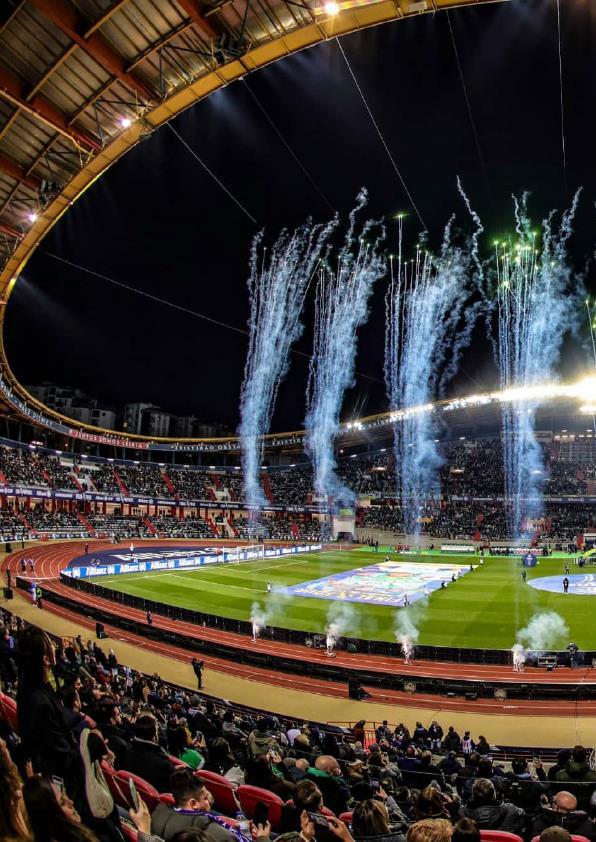
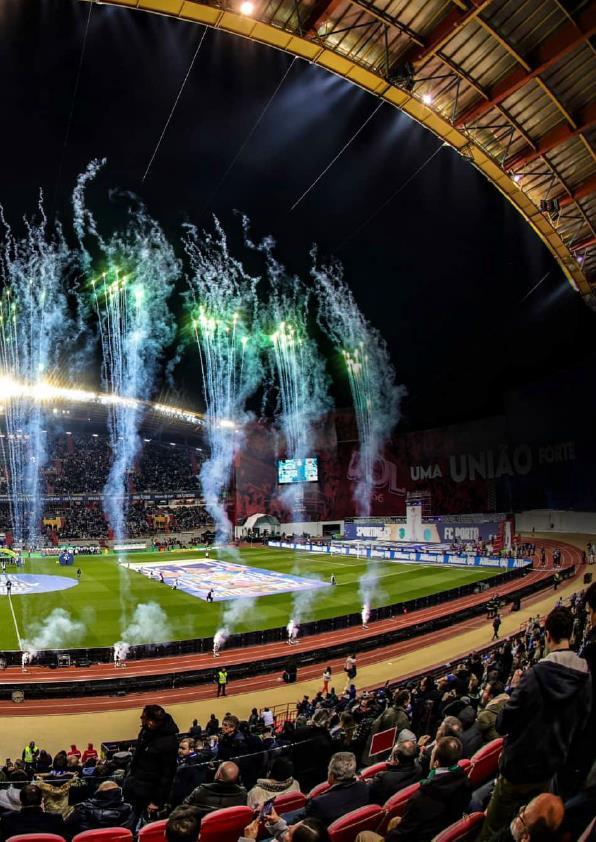
EY exists to build a better working world, helping to create long-term value for clients, people and society and build trust in the capital markets.
Enabled by data and technology, diverse EY teams in over 150 countries provide trust through assurance and help clients grow, transform and operate.
Working across assurance, consulting, law, strategy, tax and transactions, EY teams ask better questions to find new answers for the complex issues facing our world today.

EY refers to the global organization, and may refer to one or more, of the member firms of Ernst & Young Global Limited, each of which is a separate legal entity. Ernst & Young Global Limited, a UK company limited by guarantee, does not provide services to clients. Information about how EY collects and uses personal data and a description of the rights individuals have under data protection legislation are available via ey.com/privacy. EY member firms do not practice law where prohibited by local laws. For more information about our organization, please visit ey.com.
© 2024 EYGM Limited. All Rights Reserved.
000354-24Gbl BMC Agency
ED None
This material has been prepared for general informational purposes only and is not intended to be relied upon as accounting, tax, legal or other professional advice. Please refer to your advisors for specific advice. ey.com